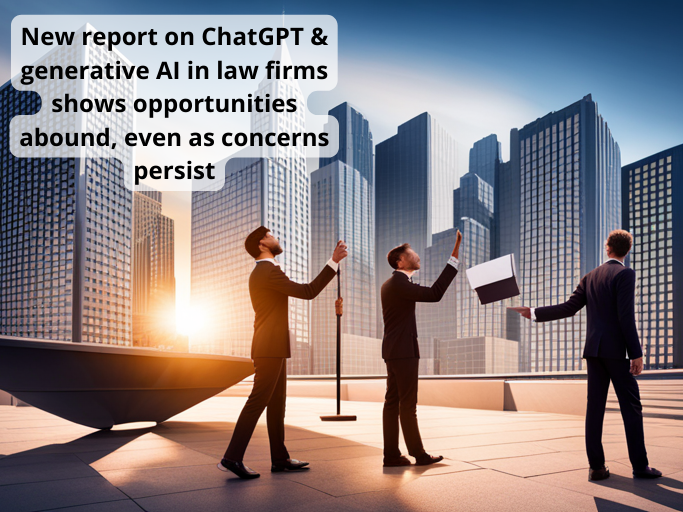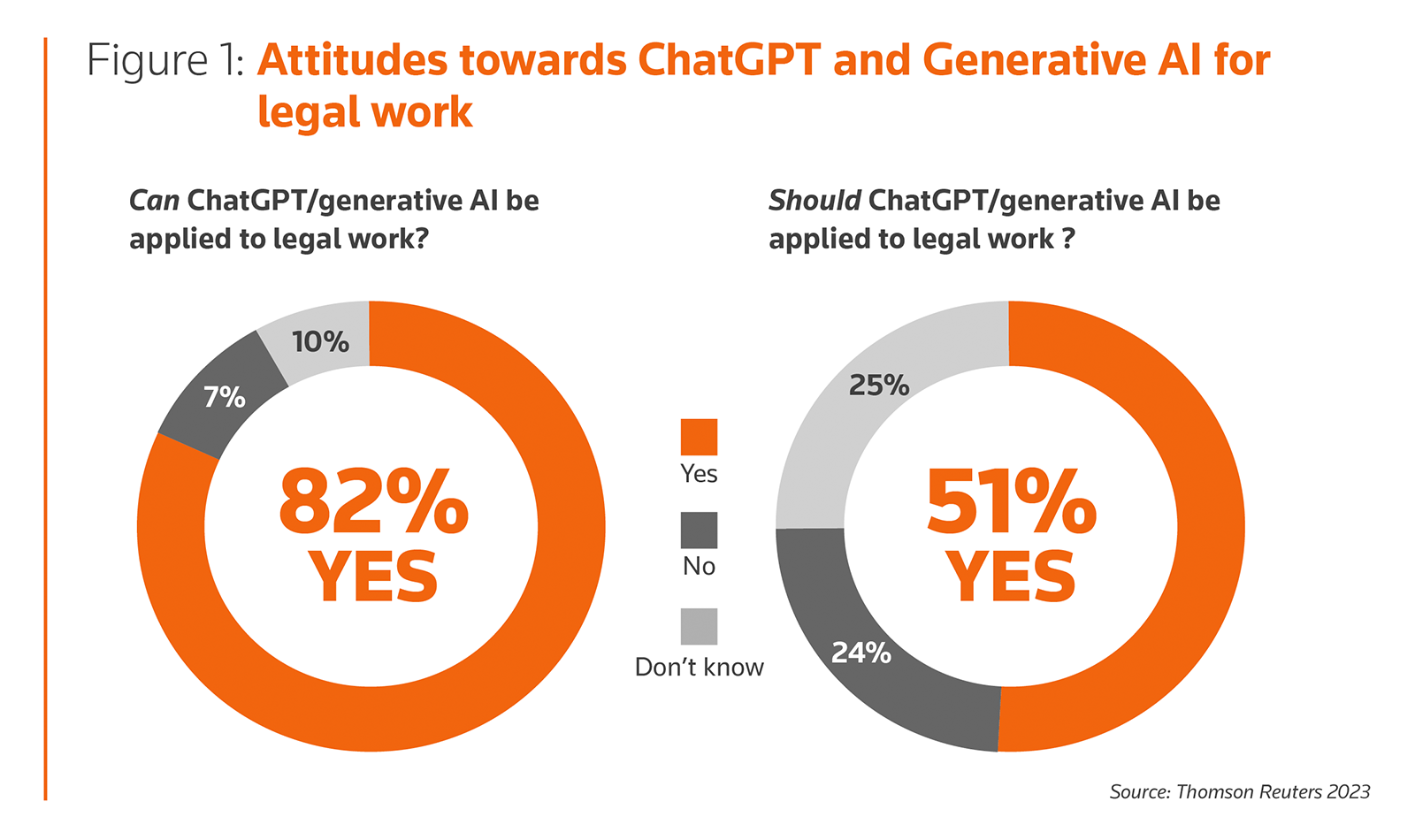
t didn’t take long after OpenAI released its ChatGPT prototype for public use — shedding light on the myriad abilities that its underlying technology, generative artificial intelligence (AI), possessed — that many lawyers and legal industry experts became keenly aware of what these tools could mean for the profession and for law firms in particular.
Not surprisingly, strong opinions arose, not only about the potential sea-change in the delivery, pricing, and execution of legal services that the wider use of generative AI could bring, but also about the unknown risks that such usage could pose.
In fact, a recent survey of law firm lawyers illustrated this dichotomy well — a large majority (82%) of those surveyed said they believe that ChatGPT and generative AI can be readily applied to legal work; and a slightly smaller majority (51%) said that ChatGPT and generative AI should be applied to legal work.

The survey, conducted in late-March by the Thomson Reuters Institute, gathered insight from more than 440 respondent lawyers at large and midsize law firms in the United States, United Kingdom, and Canada. The survey forms the basis of a new report, ChatGPT & Generative AI within Law Firms, which takes a deep look at the evolving attitudes towards generative AI and ChatGPT within law firms, measuring awareness and adoption of the technology as well as lawyers’ views on its potential risks.
The report also reveals several key findings that deserve special attention from law firm leaders and other legal professionals as ChatGPT and generative AI evolve from concept to reality for the vast majority of the legal industry participants. These findings include:
Attitudes are evolving around this technology — While almost everybody we surveyed had heard of ChatGPT and generative AI, actual use among law firms thus far was quite limited, with just 3% of respondents saying they are actually using generative AI right now. Of course, a much larger portion (34%) said their firm was still considering whether or not to use generative AI for legal operations.
Firms are taking a cautiously proactive approach — About 15% of respondents said their firms have warned employees against unauthorized generative AI use at work, and 6% said their firms have banned unauthorized usage outright, indicating that many lawyers clearly understand the importance of applying guardrails to generative AI use. In fact, all those interviewed noted that they do not fully trust generative AI tools — and particularly the public-facing ChatGPT tool — with confidential client data. Yet, even as this mistrust exists, our research shows that attitudes are changing, and potential use cases are being explored by many law firms.
There’s a growing awareness of the risks — A large portion of respondents had concerns with use of ChatGPT and generative AI at work — 62%, which included 80% of partners or managing partners. Further, many of the concerns voiced in our survey seemed to revolve around the technology’s accuracy and security, most specifically about how law firms’ concerns of privacy and client confidentiality will be addressed. Still, many legal industry observers (and many of our respondents) know that by any measure, we are still early in the game for generative AI and ChatGPTs. It is expected that time and experimentation will make users more comfortable with these tools, and a day will come when generative AI and ChatGPT is in as common use within law firms as online legal research and electronic contract signing are now.
Yet, whichever side of the debate over this fledgling technology a lawyer might find themselves, one idea the report makes clear — whatever the level of use of ChatGPT and generative AI eventually reaches among law firms and throughout legal, this technology has the potential to change the industry. And even in its infancy, the growing acceptance of ChatGPT and generative AI is being seen as a watershed moment.
“Within the next six months everybody at the firm will be using it,” said Charlotte Woolven-Brown, Head of Employment and a Partner at law firm Sternberg Reed in the United Kingdom. “And there’s absolutely no way you’re going to stop that, because people will get more in tune with what’s happening and how quickly this technology is developing.”
